ARTICLE AD BOX

 BBC
BBC
Mohammed Zubair is a co-founder of the fact-checking website AltNews
More than two years after the Supreme Court granted bail and ordered “immediate release” of Mohammed Zubair from prison, the leading Indian fact-checker and journalist is once again back in court.
On Tuesday, the Allahabad high court is due to hear his petition in a fresh case as police in the northern state of Uttar Pradesh seek his arrest, accusing him of “endangering sovereignty, unity and integrity of India”.
The charge is non-bailable and a conviction could mean a minimum of seven years in jail and fine or even life imprisonment.
Zubair, who’s a co-founder of the fact-checking website called AltNews, denies all the accusations against him. “I feel I’m being targeted because of the work I do,” he told the BBC.
Described by some as “a thorn in the side for the government because he's single-handedly taking on hate crimes", Zubair is wanted in connection with a post he put out on X spotlighting hate speech by a controversial Hindu priest.
Shared on 3 October, the post included a video that showed Yati Narsinghanand delivering comments against Prophet Muhammad that many Muslims found hurtful.
The 60-year-old priest is the head of the powerful Dasna Devi temple in Uttar Pradesh’s Ghaziabad town and has been repeatedly in the news for openly calling for violence against Muslims. In 2022, he was arrested for making Islamophobic and misogynistic comments and spent a month in jail.
A day after Zubair’s post pointed out his latest offensive comments, Muslims protested outside the temple. Police said 10 people were arrested for allegedly pelting stones during the protest, PTI reported.
Several Muslim groups lodged police complaints against Narsinghanand and the priest disappeared from public view amid reports that he had been arrested. Police, however, denied that.

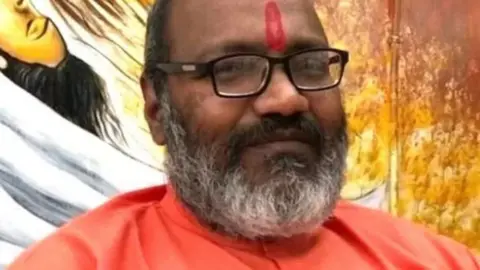
Yati Narsinghanand has often made news for openly calling for violence against Muslims
A few days later, hundreds of Narsinghanand's supporters surrounded the local police station, demanding action against Zubair. Police opened a case against the fact-checker after Uditya Tyagi – a politician from India’s governing Bharatiya Janata Party (BJP) and a close aide of the priest - lodged a complaint.
In the initial complaint, Zubair faced somewhat milder charges - including promoting enmity between different religious groups, defamation and giving false evidence. But last week, police added Section 152 of Bharatiya Nyaya Sanhita - as India’s new legal code is called - to the list of charges, accusing him of “endangering sovereignty, unity and integrity of India”.
This, legal experts say, allows police to arrest Zubair. His lawyer has sought interim bail and also asked the court to throw out the case.
In his defence, Zubair says he was not the only one who had posted Narsinghanand’s remarks and that a number of journalists, politicians and media channels had tweeted the video even before him.
- Sidhique Kappan: Jailed and 'tortured' for trying to report a rape
- Yati Narsinghanand Saraswati: Who is the arrested Hindu priest?
“Police have registered a case against me based on complaints from the followers of a man who routinely gives hate speeches. And they are going after someone who's reporting hate speeches, while people giving hate speeches are going free,” he says.
“This is an attempt to gag people trying to hold the government to account,” he adds.
Pratik Sinha, Zubair’s colleague and the other co-founder of AltNews, says the authorities go after Zubair because of the work he does and because it makes an impact.
“It's a classic case of shooting the messenger. It's a witch-hunt,” he told the BBC.
“Why are the police invoking more stringent charges against him nearly two months later? It's not just Narsinghanand and his supporters going after him - this is actually the government going after him.”
The addition of the draconian charge against Zubair has also been criticised by rights organisations and groups representing journalists and media in India who say that Section 152 is a “new version” of the colonial-era sedition law.
Amnesty International India said it was an example of how the law was being used “to harass, intimidate, and persecute human rights defenders, activists, journalists, students, filmmakers, singers, actors and writers for peacefully exercising their right to freedom of expression”.
The Press Club of India condemned the move and demanded withdrawal of the police case against Zubair.
“All sane minds have been opposing this section as it has potential to silence the free thinkers and media. It can also be imposed against those who are critical of dispensation,” it said in a statement.
Digipub, an association of digital media organisations, condemned the “escalating harassment” of Zubair and described the allegations against him as “unfounded”.
“This is a vindictive and unreasonable over-reach by agencies of the state,” it said.

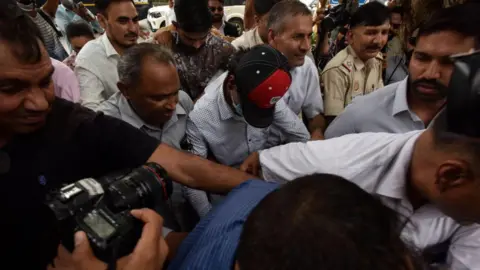 Getty Images
Getty Images
Mohammed Zubair's arrest in 2022 was criticised by the UN Secretary General's office
The government had faced similar criticism in 2022 when Zubair was arrested and spent more than three weeks in jail before the Supreme Court freed him on bail.
Delhi police had arrested him over a 2018 tweet which was a screengrab from a popular 1980s Bollywood film, but they accused him of "insulting Hindu religious beliefs". Later, police in Uttar Pradesh also registered cases against him, accusing him of other misdemeanours including criminal conspiracy and receiving foreign funds.
BJP spokesperson Gaurav Bhatia had accused him of being “selective and politically biased” in his fact-checking and said his tweets “hurt the religious sentiments of a large number of Hindus”.
But many at the time linked his arrest to the controversial Islamophobic comments made by BJP spokesperson Nupur Sharma. The Hindu newspaper said Zubair was “being made to pay for a tweet that had drawn wide attention to Sharma’s vile remarks” against Prophet Mohammad and described it as an instance of the government's "intolerance towards fact-checkers who frequently expose its claims".
- The Indian woman behind offensive Prophet Muhammad comments
- Nupur Sharma: Prophet Muhammad remarks deepen India’s diplomatic crisis
International rights groups and the United Nations had also expressed concern, with a spokesperson for the UN chief Antonio Guterres saying that "journalists should not be jailed for what they write, tweet, and say".
But critics say that’s exactly what the authorities are using to pick on Zubair and other journalists.
India has been consistently sliding on the Global Press Freedom rankings - it is now placed at 159 out of 180 countries - according to media watchdog Reporters Without Borders (RSF).
“Journalists critical of the government are routinely subjected to online harassment, intimidation, threats and physical attacks, as well as criminal prosecutions and arbitrary arrests,” the annual RSF report said.
In the past, the Indian government has rejected the report, saying its methodology was “questionable and non-transparent”.

 1 month ago
8
1 month ago
8
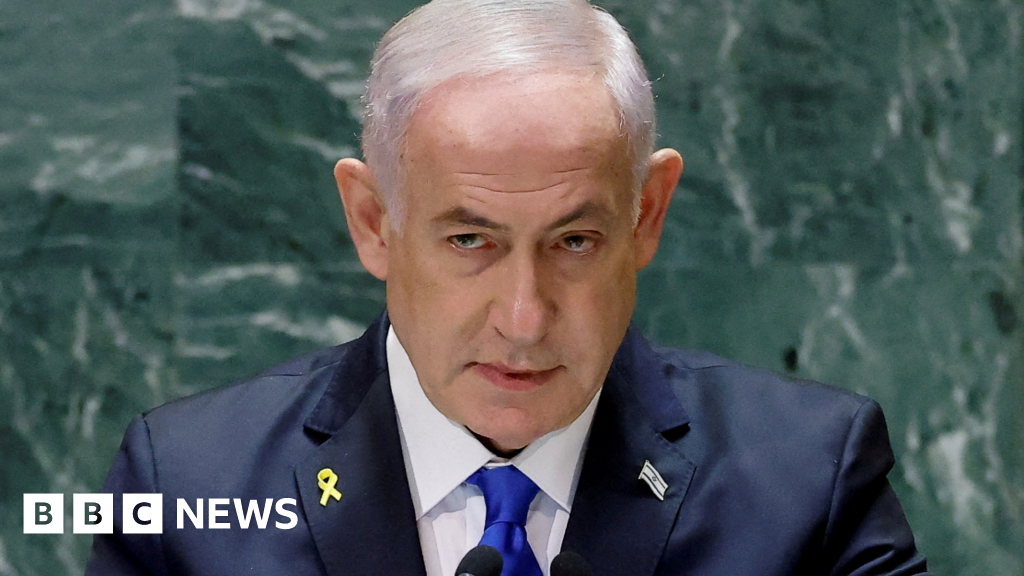
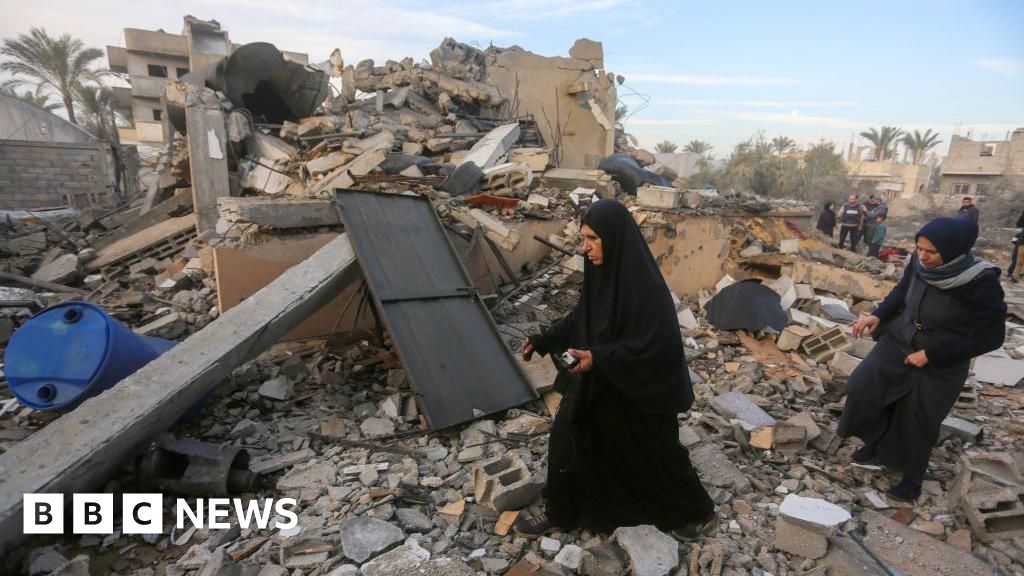
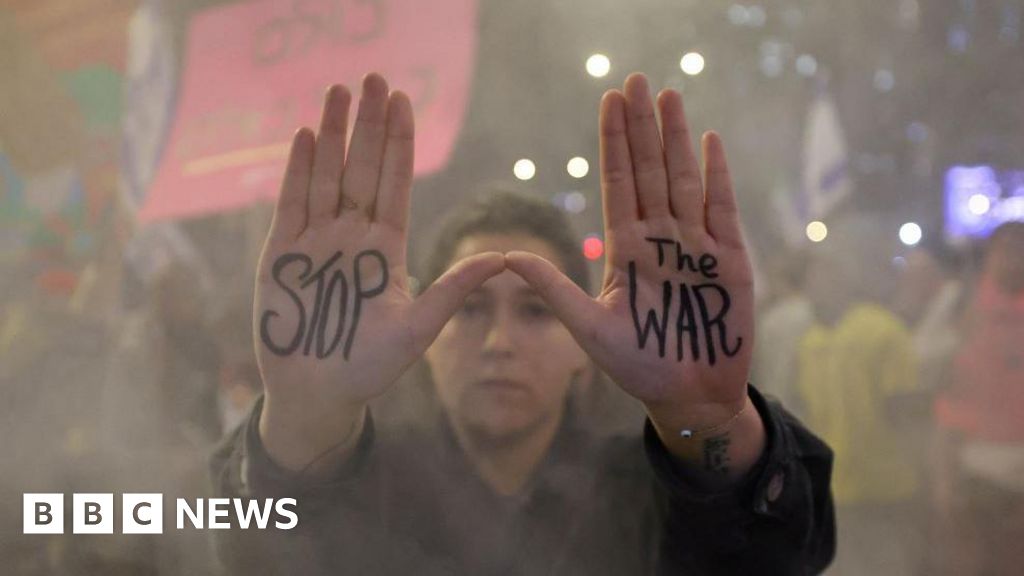





 English (US) ·
English (US) ·